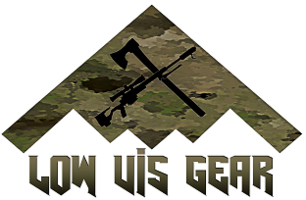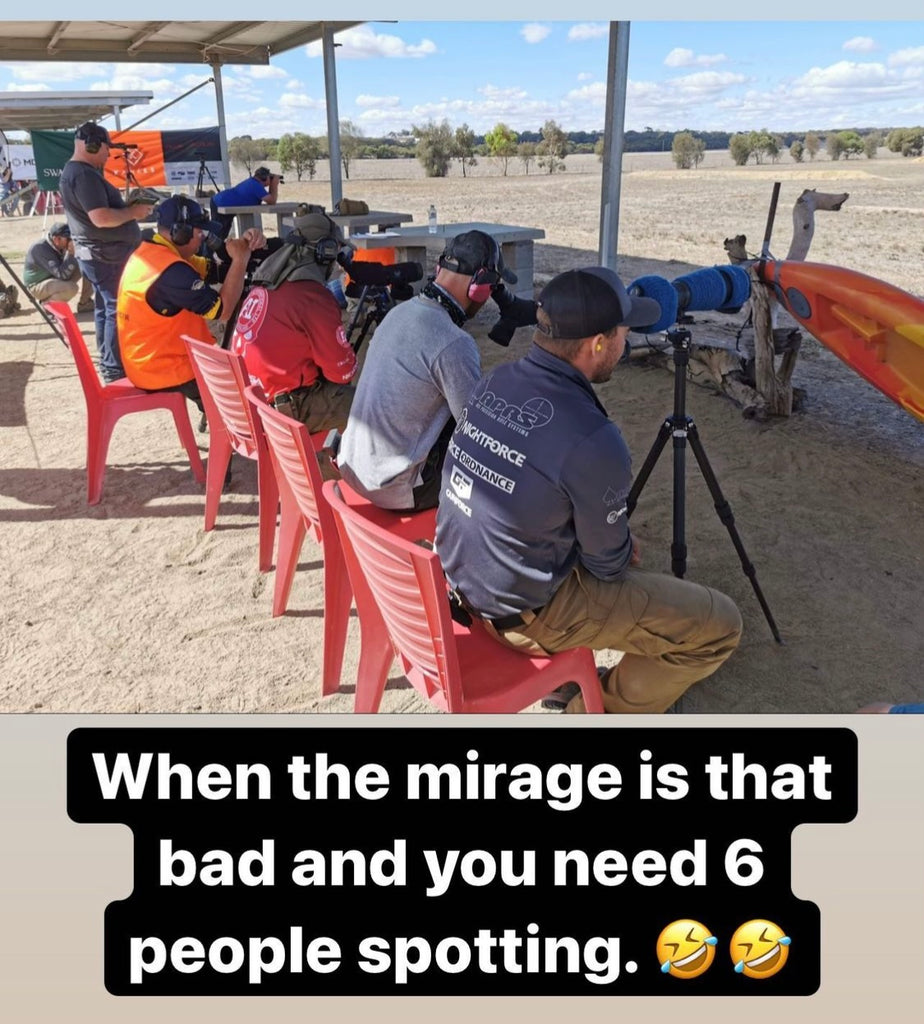Managing expectations and problems at competitions:
It's great to see so many new shooters competing, bright eyed and bushy tailed... Keen to get involved and willing, throwing their hat in the ring and having a go!
Frothing over the prospect of entering a new hobby, buying all the gear, putting in time on the range, doing load development, testing all kinds of shiny new things and trying out different skills... THIRSTY for knowledge.
Everything is looking pretty good, things are feeling pretty slick...
The lads book in for a local or national match and very often get completely and utterly hosed... Zeroing stages, stage DQ's, equipment failures, leaving elevation on a turret from the last stage, forgetting a sequence, engaging incorrect targets etc... It can be brutal to watch the ship slowly sink into the ice cold, deep, dark ocean of doubt and despair!
Some never return, some figure it out and excel quickly, some just maintain and cruise along.
The group varies greatly from extremely credible blokes, from all over Australia, with a whole host of excellent skills through to the brand new shooter who is trying a new sport. It's an interesting environment full of good, honest people.

My first national PRS multi-day match was in Mildura in 2018. I expected to go alright, having shot all kinds of disciplines for a long time, had some reasonable equipment and thought things were in a pretty good place to go out and slay some steel, win some stuff and come home a triumphant King... 🤣
Turns out I got my arse absolutely KICKED into the dark ages. Ended up slipping into 22nd out of 53. It was an embarrassing and awkward experience... I was uncomfortable talking about it with mates back home asking how it all went. Not a very nice feeling, having failed to manage my own expectations, under-estimate the vast array of new challenges, struggle in so many different areas and overall being woefully ill-prepared for such an enormous departure from more 'conventional' shooting sports.
This was a decision point... Be extremely critical of the 'performance' OR pay it off and just ignore the glaring signs that a LOT of work was needed.
A savagely honest spreadsheet with 20+ dot points of everything that was lacking, down to fine details was created... Followed by targeted training with repetition, deliberate practice, video recorded isolated drills etc... Everything was put under a microscope.
Such as:
- Off hand shooting, practice... Very foreign running bolt with opposing hand
- Magazine changes, equipment setup inefficient
- Dialing turrets, getting lost holding over quickly
- Check parallax prior to stage
- Dialing before a stage, data management
- Time management, too slow to get into position
- Bipod height issues, lack of experience setting up beforehand
- Tripod height incorrect, lots of stuffing around mid stage adjusting
- Height over bore issues with that rifle setup in tight aperture barricades
- etc. etc. etc.
It is important that you come to terms with the fact that for the most part - No one is going to help you that much. You might get a bit of a 'hey man, try this...' but you really need to seek out help, skills or knowledge and be accountable for your own skill set.
Fast forward a few years and thousands of match rounds later, I think the one of the most important skills in any individual competition is to manage your own emotions and expectations.

You don't necessarily need to be the BEST at EVERYTHING, you don't need to be the FASTEST at everything...
What you do need to do however, is to be consistently above average. Over a two day match, if you can maintain at least a 'reasonable' standard, doing your best to minimise simple mistakes and fight to land at least average scores, then even some of the most high performing shooters may eventually slip past as you cruise aggressively over the weekend.
If you can maintain a reasonable standard, and shooters above you have a couple of blow out stages, you may find yourself in a favourable position pretty quickly.
Try to avoid setting yourself a goal of where you want to end up, "top 10", "top 30" etc... Don't set yourself up or sell yourself short. Just do your best, at every opportunity, take notes, embrace the struggle with open arms and push forward, aggressively learning as you go.
This is of course much easier said than done.

BEFORE A STAGE:
Take notes in the match book. Highlite key words in stage briefs, figure out your dope, figure out your shot sequence favouring efficiency and simplicity. Figure out HOW MUCH TIME PER SHOT you have for a stage, averaged out over factoring in movement, set up, equipment deployment etc... Fill out your data arm board, check your turrets, look at the wind just before you shoot, BREATHE, focus on one thing at a time, prioritise your work... One million things to manage, 'what's important NOW, what's important NEXT'.
DURING A STAGE:
You know what to do, you know how long you have, you have the gear you need... Take your time, maximise contact with the ground / barricade etc. Try to work at about 80%, allowing at least some brain power to identify changes in the environment, watching closely for your impacts, making corrections on the fly as required... If you realise you are moving too slowly, you are missing due to wind, you have a mandatory mag change coming up etc. PACE YOURSELF, DO ONE THING AT A TIME. Do everything in your power to not get flustered, keep breathing, focus on one thing at a time. 6 good shots are better than 10 rushed misses. 6 hits out of 7 shots in time are more useful than 4 hits, 4 misses and finishing with 20 seconds left on the clock.

1. BEFORE THE BUZZER, BREATHE... RELAX... ENJOY THE PRESSURE.
2. MOVE INTO POSITION QUICKLY.
3. SET YOUR GEAR UP EFFICIENTLY.
4. GET LOW, BE LAZY, LET THE POSITION DO THE WORK.
5. MANAGE WIND, REFINED AIMING POINT, SLACK, SQUEEZE, OBSERVE.
6. MAKE ANY CORRECTIONS, CONTINUE.
7. PACE YOURSELF, DO ONLY WHAT YOU CAN DO WELL, DO NOT RUSH.
8. MINIMAL UNNECESSARY MOVEMENT. KEEP YOUR HEAD ON THE RIFLE.
9. TRY TO LOOK SMOOTH (If it looks smooth, it probably is smooth).
AFTER A STAGE:
Write down your score, take note of any major issues faced during the stage. 'Tripod set too tall', 'bad wind calls - changed direction', 'time management, too slow' etc... Everything is YOUR fault. Don't be embarrassed or upset, simply learn from it and move on, you have more work ahead... You can't change the past.
"Experience is gained AFTER you needed it..."
REFLECTION & DEVELOPMENT:
Take pride in your skills, take ownership of your abilities and be willing to make positive changes along the path... Be flexible and supple, don't get too set in your ways as the challenges / obstacles / timings etc. shift constantly. No one is perfect (some of the lads are pretty close!). You have to appreciate the amount of effort and time that is required to excel in such a competitive environment. Talent will take you only so far, the rest boils down to time behind the trigger, good practice, consistency and numbingly boring repetition - having a random skill, available on demand, without a warm up.

(New Zealand Mountain Challenge with Jay from Orange Accuracy)
Good gear is important, a good mindset is critical. Be a good student, manage your ego.
We love seeing shooters excel in this environment and absolutely appreciate watching fresh guys helping brand new shooters fight through their early matches. It's an individual competition but also an activity to be embraced and enjoyed... We are all in it together.
GET AFTER IT!
The aim of this is to try and break down some of the personal barriers new shooters face when attending matches. It is OK to struggle. If you need help, simply reach out, there are so many outstanding people at these comps that will absolutely bend over backwards to give you a hand. Even simply turning up is a big deal. Welcome to the mix.

